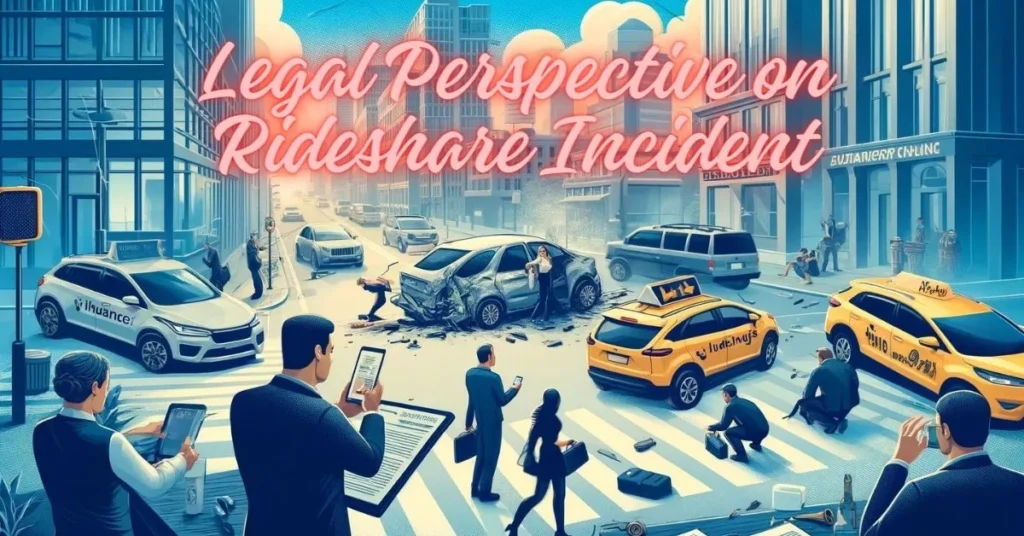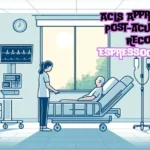With the continued integration of rideshare services into the flow of urban transportation, incidents involving these services are on the rise. When a phone’s tap summons a car within minutes, we savor the convenience but may not ponder the potential legal complications of an accident. In cities like Dallas, the bustling streets see thousands of rideshares daily, increasing the likelihood of accidents. In these unforeseen and stressful moments, knowledge of one’s rights and the intricacies of law surrounding rideshares becomes invaluable. The aftermath can be frightening for all parties involved, including passengers and third parties. However, Dallas residents who experience such an event may consider consulting a Lyft accident attorney in Dallas to obtain legal counsel tailored to the unique circumstances of rideshare incidents.
Contents
- The Prevalence of Rideshare Accidents
- Passenger Rights in a Rideshare Accident
- Liability and Insurance: Who is Responsible?
- What to Do at the Scene of a Rideshare Accident
- Seeking Medical Attention and Documenting Injuries
- Understanding the Legal Process
- Recoverable Damages in Rideshare Accidents
- How to Choose the Right Legal Representation
- Legal Myths about Rideshare Accidents Debunked
Rideshare services have sewn themselves into the fabric of urban transportation, but with the influx of these convenient services comes a rise in related vehicular accidents. A study cited by the Insurance Institute for Highway Safety indicates that there has been a notable increase in such incidents, perhaps due to the rapid expansion of the industry and the sheer number of rideshares on the road at any given time. Despite efforts to improve safety measures, including background checks and vehicle standards, the number of rideshare vehicles intersecting with day-to-day traffic has unavoidably influenced accident statistics.
Understanding the factors that contribute to rideshare accidents is crucial. Whether it is driver inattention, inadequate vehicle maintenance, or the erratic behavior of other drivers, identifying the common causes of these collisions informs passengers and the public about proactive steps for safety. Increased awareness can also encourage rideshare companies to implement stricter safety measures for the welfare of all.
When a rideshare service is utilized, passengers implicitly trust the safety of both the driver and the service provider. In an accident, understanding passenger rights becomes a matter of priority. Initially, passengers must ensure their immediate well-being and contact first responders for injuries. Following this, passengers should notify the rideshare company through the mobile application, as most companies have protocols for such events. Passengers should know they are entitled to compensation for injuries or losses due to the driver’s negligence or other contributing factors. It is where obtaining accurate information at the scene—such as capturing photos, noting down details, and obtaining the insurance information of all involved parties—becomes critical. These initial details can strengthen a legal claim significantly.
Liability and Insurance: Who is Responsible?
Regarding liability in a rideshare accident, the waters are often murky. The primary question always pertains to who is at fault—the driver, the rideshare company, a third party, or a combination thereof. Rideshare services generally provide insurance for their drivers, which can come into play during an accident; however, the coverage details and conditions may vary considerably and are often subject to limitations based on the status of the rideshare at the time of the accident (e.g., whether the driver was carrying a passenger or waiting for a ride request).
Insurance complexities such as determining whether personal insurance or the rideshare’s commercial insurance applies, understanding deductibles, and know-how on filing claims make it paramount to read the fine print of any policy. Insights from industry experts suggest that personal insurance policies may not necessarily cover damages if an individual uses their vehicle for commercial purposes, such as driving for rideshare, unless they have a specific endorsement.
Immediate action is needed at the scene of a rideshare accident, and the steps one takes can influence the outcome of future claims or legal actions. Begin by checking for injuries and ensuring that everyone involved is safe. It is then crucial to alert the authorities and have them file a police report. This document is an official account of the incident and is valuable during the claims process. While waiting for law enforcement, gather information from all parties involved, including contact details, insurance information, and vehicle registrations.
Documenting the accident is also advised; taking photographs and videos of the incident, the surrounding area, and any damages can provide irrefutable evidence later on. If witnesses are on the scene, their accounts could corroborate your events, so collecting their contact information is advantageous. Stay true to the facts and refrain from discussing or acknowledging fault, as these could be misunderstood or used against you in court.
Seeking Medical Attention and Documenting Injuries
It must be addressed that seeking immediate medical attention following a rideshare accident is crucial. Injuries are sometimes not immediately apparent; symptoms can manifest in hours or even days. Therefore, medical evaluation is vital for health reasons and legal matters, as medical records serve as evidence of any harm sustained in the accident. From the initial examination through the entire course of treatment, it is paramount that all details are thoroughly documented. Keep copies of medical reports, journal symptoms, and limitations, and maintain a file for receipts of all related expenses. This documentation shows how the accident caused the injuries, which is necessary for proper compensation.
Understanding the Legal Process
Navigating the aftermath of a rideshare accident involves several legal considerations and steps. Initially, the victim may file a claim with the at-fault party’s insurance company. Settlement offers are commonplace throughout the negotiation phase, but ensuring that any compensation is just and commensurate with the damages suffered is crucial. If talks are unsuccessful, the matter may be taken to court, where a judge or jury will hear testimony and decide the case.
Throughout the legal process, having a seasoned attorney is invaluable. Their knowledge enables them to successfully negotiate with insurers, defend their clients tenaciously in court, and negotiate the complexities of insurance contracts. The ability to file a lawsuit within the statute of limitations, which differs from state to state and can significantly impact the viability of a legal claim, is another crucial piece of information to be aware of.
The compensation received by victims of rideshare accidents can be vital for recovery and returning to everyday life. Pain and suffering, non-economic damages, lost wages, and medical expenses may all be covered by this settlement. Punitive damages may also be granted in severely negligent cases to penalize the offender and discourage similar behavior in the future. The road to obtaining these damages can be complex and requires a detailed accounting of all incurred losses. Legal representation can clarify and ensure a victim’s rights are fully exercised. Attorneys can verify the extent of injuries and the proper damages by examining medical records and employment documents and consulting with financial experts.
How to Choose the Right Legal Representation
Selecting the right attorney can have a lasting impact on the outcome of a rideshare accident case. Look for a lawyer with experience in this particular realm, as they will understand the unique handling these cases require. It is advisable to inquire about their experience with rideshare companies, past case outcomes, and their approach to client communication and case management. A reputable attorney will provide a clear roadmap for the case, conduct a thorough investigation, and work diligently to protect the client’s interests. The first meeting provides an opportunity to review the case’s specifics, lay out goals, and determine whether the lawyer is a good fit. This meeting is also the perfect time to clarify their fee structure and the services covered under their representation.
Several misconceptions swirl around the aftermath of a rideshare accident. One such myth is the belief that the rideshare company will automatically assume responsibility for everything, from medical bills to car repairs. The reality, however, is more nuanced. Rideshare companies often have protections to shield themselves from direct liability, complicating the pursuit of fair compensation. Another myth is the assumption that personal car insurance is irrelevant because the rideshare company’s policy will cover all damages. It is not always the case—personal insurance may come into play, mainly if additional coverage was purchased for ridesharing activities. To dispel these myths and obtain reliable information, consider consulting the National Highway Traffic Safety Administration resources that address various safety aspects of passenger vehicles involved in accidents, including those used for ridesharing. Further education can empower individuals to navigate the aftermath of rideshare accidents with greater confidence and understanding. In conclusion, as rideshare services continue to revolutionize urban transportation, the intricacies of legal and safety considerations similarly evolve. Being aware of your rights and what to do in the event of a rideshare accident can help lessen the trauma. By being aware of liability, insurance, and competent legal counsel’s roles, one can handle these unforeseen events more easily and clearly and ensure everyone’s rights are respected and upheld.











